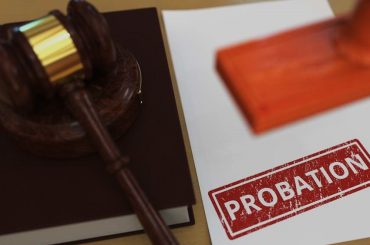Absolutely, an out-of-state felony warrant lets police arrest you anywhere in the U.S. because felonies are serious. Agencies work together, often using the NCIC database, to catch suspects. If arrested, you might be extradited back to where the crime happened, depending on the crime’s seriousness and state laws. For misdemeanors, extradition is less common, but ignoring any warrant can still cause issues like fines or jail time. Always best to get legal advice on out-of-state warrants.
Can I be arrested in another state on a felony warrant?
Yes, you can indeed be arrested in another state for facing a felony warrant. Arrest warrants grant law enforcement the authority to apprehend the individual named in the warrant, regardless of their location within the United States. This means if there’s an outstanding felony warrant against you from one state, law enforcement officers in another state can arrest you based on that warrant.
In cases of serious felonies, such as murder or rape, law enforcement agencies are more likely to actively coordinate across state lines to ensure the arrest of the wanted individual. This inter-state cooperation can include sharing information, resources, and sometimes even personnel to track down and arrest the individual facing the warrant.
Following the arrest in another state, the extradition process can be initiated to transport the arrested individual back to the state that issued the warrant. Extradition is the formal process where one jurisdiction surrenders an individual to another jurisdiction where they are accused or convicted of committing a crime. This process is governed by both state and federal laws, which typically ensure that the individual has certain rights, including the right to a hearing. This hearing allows the individual to contest the extradition under certain grounds, though these cases can be complex and challenging to navigate without legal assistance.
What about an arrest warrant?
An arrest warrant for a misdemeanor offense issued from another state still authorizes law enforcement officers in your current state to arrest you. This is because arrest warrants generally grant police the authority to apprehend the named individual regardless of their current location, similar to felony warrants. The key distinction with misdemeanor warrants, however, lies in the subsequent actions taken post-arrest, particularly regarding extradition.
Misdemeanors are indeed considered less serious than felonies and typically carry lighter penalties. Due to the lesser severity of misdemeanors and the cost and logistics involved in extradition, states are less likely to pursue extradition for individuals facing misdemeanor charges from another state. Instead of extradition, local authorities might choose to impose penalties within the current jurisdiction, such as fines or jail time, depending on the nature of the offense and the laws of the state where the person is arrested.
While extradition for misdemeanors is rare, it’s important to note that the existence of an out-of-state warrant can still lead to significant legal issues, including arrest and potential penalties. Ignoring an out-of-state warrant can complicate your legal situation and potentially lead to further consequences. Therefore, it’s advisable to address any outstanding warrants, whether for misdemeanors or felonies, by seeking legal advice and taking appropriate steps to resolve the matter legally.
Do arrest warrants expire?
Arrest warrants do not typically expire. Whether for a felony or misdemeanor offense, an arrest warrant remains valid until the person named in the warrant is arrested or the court otherwise recalls or quashes the warrant. This means that an individual with an outstanding arrest warrant can be arrested at any time after the warrant is issued, whether it’s shortly after issuance or years later. Arrests often occur during routine checks, such as traffic stops, when officers discover the outstanding warrant.
The issuance of an arrest warrant requires a showing of probable cause. This can be initiated by a district attorney, a peace officer, or as a result of a grand jury finding, depending on the state’s criminal procedure laws. Probable cause means there is a reasonable basis for believing that a crime has been committed and that the person named in the warrant committed the crime.
It’s important to differentiate between arrest warrants and search warrants. While an arrest warrant authorizes law enforcement to take a person into custody, a search warrant permits the police to search a person, their residence, vehicle, place of business, or any specified area for evidence of illegal activity. Both types of warrants require a judge’s approval based on probable cause, but they serve different purposes within the criminal justice system.
Given the persistent nature of arrest warrants, it’s crucial for individuals with outstanding warrants to address them promptly. This often involves consulting with a legal professional who can advise on the best course of action, which may include surrendering to authorities or challenging the warrant in court, depending on the circumstances. Ignoring an arrest warrant can lead to complications, including arrest at inopportune times and potential impacts on employment, given that warrants can be discovered during background checks.

Can a criminal defense attorney help?
Absolutely, a criminal defense attorney can be a crucial ally when dealing with arrest warrants or any legal issues surrounding potential criminal charges. Their expertise is particularly beneficial in navigating the complexities of the legal system, understanding your rights, and developing a strategy to address the warrant effectively.
Here’s how a criminal defense lawyer can help:
- Identify Warrants: They can review your criminal record to determine if there are any active arrest warrants, search warrants, or bench warrants against you.
- Clearing Warrants: Attorneys can advise on the best course of action to clear a warrant. This might involve arranging for a court appearance, negotiating with the prosecution, or securing a court order. The specific steps can vary depending on the type of warrant and the underlying charges.
- Legal Compliance: If turning yourself in is the best option, a lawyer can coordinate with law enforcement to ensure that your surrender is managed in a way that minimizes the impact on you. They can also prepare for immediate legal actions, such as bail hearings, to facilitate your release.
- Defense Strategy: Beyond addressing the warrant, a criminal defense attorney can help develop a defense strategy for the charges you’re facing. Whether it’s negotiating plea deals, preparing for trial, or working to have charges reduced or dismissed, an attorney’s guidance is invaluable.
- Free Consultations: Many defense lawyers offer free initial consultations. This allows you to understand your legal situation, learn about your options, and decide how to proceed without incurring upfront costs.
Facing an out-of-state felony warrant can bring serious consequences, including arrest and possible extradition. The severity of the crime often dictates the likelihood of being extradited back to the state where the crime occurred. While misdemeanors might not always lead to extradition, ignoring any warrant can still lead to significant legal troubles. Therefore, it’s critical to take such warrants seriously and seek legal advice. By understanding the mechanisms behind these warrants and the potential outcomes, individuals can better prepare to address these legal challenges.




